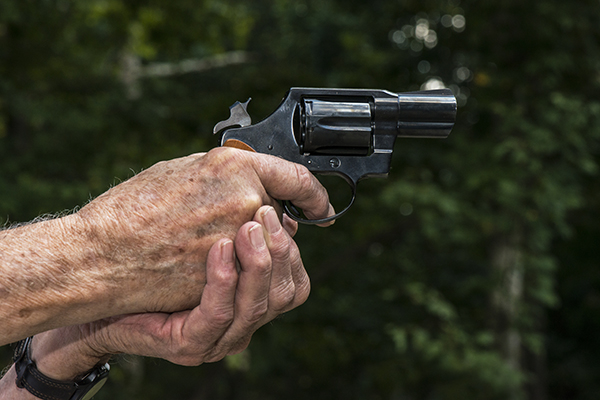
What you need to know about guns and dementia.
With an impassioned level of debate rivaling the Hatfields and McCoys, it appears insurmountable to come to a resolution around the issue of gun control. Yet in spite of which side of the fence you are on, there’s one little-discussed scenario that will cause all of us to take pause: the frightening mixture of dementia and firearms.
A third of all seniors in the United States report owning a firearm, and an additional 12% are living in the house of a gun owner. Bearing in mind that nearly 9% of those over age 65 have some form of dementia (and that number is anticipated to more than double by 2050), it totals an incredible number of older adults with dementia living with guns. Together with irregular states of confusion, aggression, and other difficult behaviors, having guns in the house sets the stage for possible tragedy.
Within the state of Washington alone, a government study found that tens of thousands of older adults (54,000) reported memory decline and confusion along with access to firearms – and as many as 15,000 of those respondents reported that the firearms they had access to were both unlocked and loaded.
In fact, in one single year alone, a Kaiser Health News report uncovered upwards of 75 reported homicides or suicides committed by people with dementia, in addition to instances of firearms being brandished against those closest to them – family members, neighbors, caregivers. Additionally, the suicide rate for older adults is greater than for any other age bracket, with guns being the most prevalent source for senior men, as reported by the CDC (Centers for Disease Control and Prevention).
The Alzheimer’s Association recommends removing firearms from the houses of those with dementia; however, if that isn’t a choice families are prepared to consider, it is vital that you be certain firearms are stored properly – locked, unloaded, and kept separate from ammunition. A bit of creativity can help as well – as an example, replacing real guns with toy models that allow a person who was an avid hunter to safely maintain his connection to that activity.
For more recommendations on keeping people who have dementia safe, call the skilled dementia care team at Generations at Home. Our fully trained and experienced caregivers are adept in assisting with the more challenging components of dementia, and in determining when a senior might be in crisis and require medical help. Our dementia respite care services allow family caregivers the chance to rest and renew, understanding their loved one is incompetent and caring hands. Call us at 727-940-3414 to find out more.







